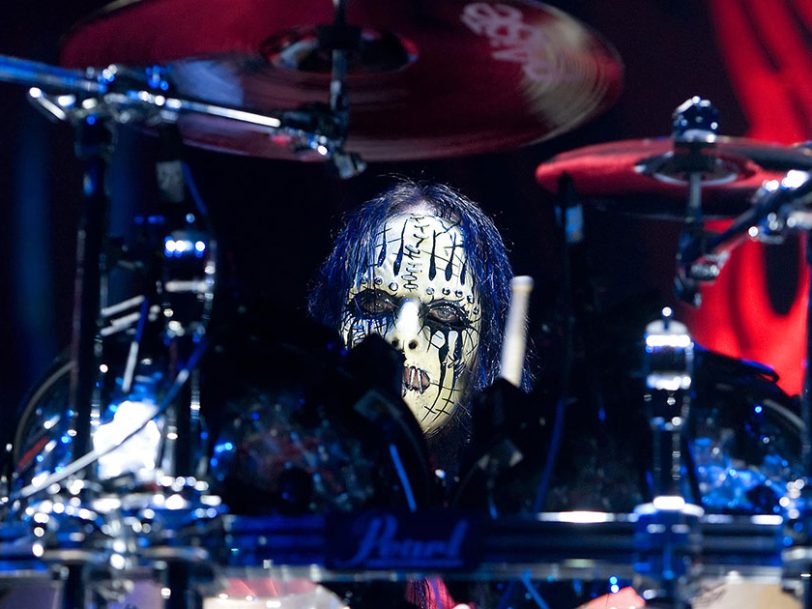For Slipknot drummer Joey Jordison, music wasn’t just a creative outlet or the way he made a living. Nor was it a passing phase in adolescence he would eventually grow out of. It was something he discovered in his most formative years – and it would soon dominate his life. Music became as vital to him as his beating heart and the blood flowing through his veins. It was his life.
“I latched onto music at a young age and it was all I cared about,” Jordison once recalled to Metal Hammer magazine. “I was a daydreamer, thinking about these larger-than-life possibilities that could happen if I worked hard.” Jordison had an unmistakable energy even as a toddler. His mother, Jackie, would regularly find the youngster bashing away at makeshift drum kits assembled haphazardly from saucepans with wooden spoons for drumsticks. “He’d just sit on the floor and bang on pots and pans,” she told Rolling Stone. “I thought he had a heck of a beat for a little, tiny kid.”
Listen to the best of Slipknot here.
Before I forget: childhood and early years
Jordison’s parents invested in his first proper drum kit when he was eight years old. It was a moment he later described as an “epiphany”. “From that point on,” he said, “my life changed.” But the road to making music his profession was far from easy. For starters, Jordison hated school from the outset and, being an introvert, found it hard to make friends. So he threw himself into music as way to get through the days, and was rarely seen without his headphones attached to his ears. He learned guitar as well as the drums, and formed his first bands before he even reached high school. But then he had to grow up fast.
Joey’s parents divorced and his father moved out of the family home. The aspiring musician’s life changed very quickly. As he recalled in the book Slipknot: Inside The Sickness, Behind The Masks, “All of a sudden, I had to be the man of the house, in a weird way. I was helping my mom with my sisters all the time. It turned me into a more mature person at a really young age.” It also tightened his relationship with his mother, for whom he found a new respect for after seeing her run the family home on her own.
None of the setbacks ever derailed Jordison from his desired path in life. In fact, having lost all interest in “normal life” when his father left, they only fuelled his dream to become a musician. And one band who couldn’t exist much further away from the real world is the one whose roots were laid down in Des Moines, Iowa, in 1993 by a drumming Jordison, bassist Paul Gray and a local welder turned percussionist named Shawn Crahan: Slipknot.




